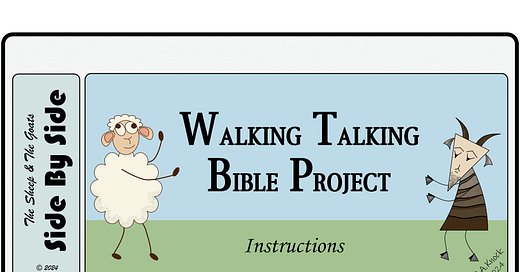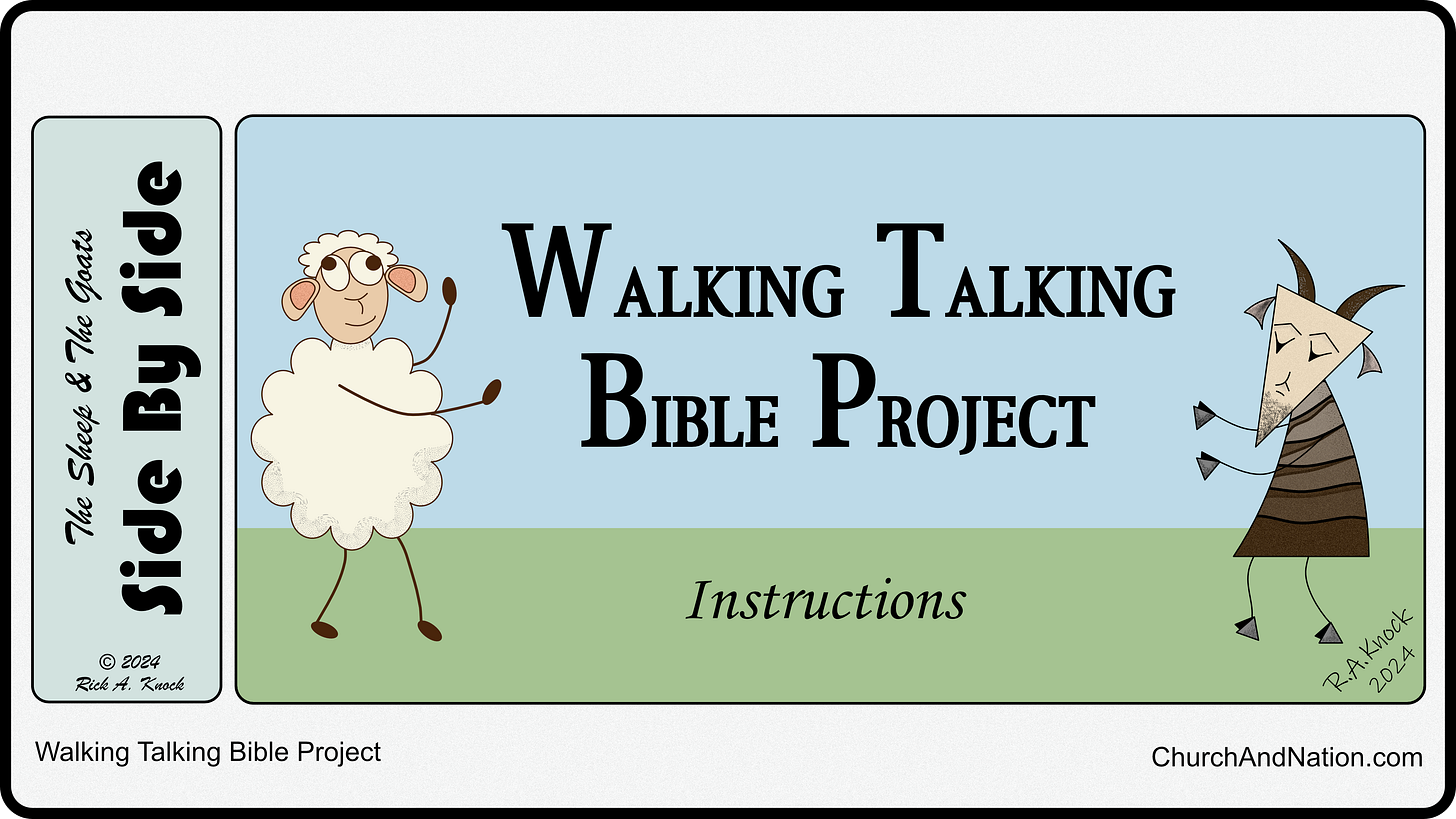Study Guide - General Instructions
Memory Passages
Copy the memory passage and keep it with you throughout the week. Recite it and think about it several times each day. Make it your goal to memorize the text of the passage together with its reference by the end of the week.
Guessing
If you do not know the answer to a question, it is okay to guess at the answer as long as you test your guess and never assume that your guess is correct. If you discover that your guess was wrong, then you can either keep guessing and testing until you find the correct answer, or you can hold on to the question and wait for the answer to be revealed later in our studies. What you do not want to do is believe something—or even worse, teach something—based only on an untested guess, no matter how reasonable the guess may seem to be.
Study Tools
When using study tools such as Bible study notes, Bible commentaries, and Bible dictionaries, you may discover that they do not always fully agree with each other. Many of these works were produced by diligent scholars who spent their entire lives studying the things of God and creating resources for the people of God. We owe them a debt of gratitude. However, all scholars operate from their own sets of presuppositions, and it is not uncommon for multiple scholars to study the same piece of text and come to somewhat different conclusions. Treat what you read in the study tools the same way you treat your guesses. Consider everything, but only accept as truth what you can verify. Hold everything else loosely and wait to see if future studies will shed more light on it.
Study Guide - Line by Line Instructions
I. Consider the Bible Passages
1. Plain Meaning
Read the memory passage several times. What is the main message?
Read the connection passages. What are the main points?
Consider the memory passage and connection passages together.
Do the connection passages reinforce, clarify, or expand upon the memory passage?
Do the connection passages seem to limit, contradict, or negate the memory passage?
Are there any notable similarities or differences between the Old Testament and New Testament passages?
Make a copy of the memory passage to keep at hand and review throughout the week.
2. Contrasts & Conditionals
Some Bible passages may contrast different people, attitudes, beliefs, actions, and/or consequences. Examples of contrast could include righteous v. wicked, obedience v. disobedience, belief v. disbelief, wise v. foolish, reward v. judgment, and others. What contrasts, if any, including consequences, are presented in the Bible passages this week?
What conditional (if-then) statements, if any, are included in the Bible passages this week?
3. Salvation & the Gospels
Do any of the Bible passages this week deal with salvation or the Gospel? If so, what do they say about them? Note that different Bible passages may discuss salvation in terms of something that has already happened in the past, something that is happening in the present, or something that will happen in the future. For example:
Justification - Past Tense: We have been saved from the penalty of sin.
Sanctification - Present Tense: We are being saved from the power of sin.
Glorification - Future Tense: We will be saved from the presence of sin.
4. Jesus and the Kingdom
What, if anything, do the Bible passages this week tell us about Jesus?
What, if anything, do the Bible passages this week tell us about the Kingdom?
5. Personal Relationships
What advice or commands, if any, do the Bible passages this week offer concerning relationships within the church, within the family, or in general?
6. Church and Worship
What, if anything, do the Bible passages this week tell us about the Church and/or worship?
7. Calls to Action
In the Bible Passages this week, what kind of action, if any, was the original audience told to take? Does this call to action apply to us today?
II. Consider the Context
8. Scriptural Context
First, read the verses immediately preceding and following this week’s Bible passages. Most Bibles have headings that can help indicate where a topic begins and ends. Second, look for cross-references. Bibles may list them in a study note, footnote, heading, or margin.
9. Additional Contexts
Use Bible study notes, Bible book introductions, Bible commentaries, and Bible dictionaries to consider other contexts, including:
Literary context - What is the genre of the Bible passage? Is it narrative, poetry, prophecy, apocalyptic, letter, other?
Historical & Cultural context - When was the Bible passage written? Who was the author? Who was the intended audience? What events or situations does it address?
Grammatical Context - In what language was the Bible passage originally written? What words did the author use and what range of meanings did they have? Does the structure of the sentence and/or paragraph help the reader understand the author’s intent?
III. Consider Potential for Error
10. Proof-Texting
Proof-texting is when someone takes a brief passage (often one verse) out of context and uses it to support their own point of view.
Read each Bible passage carefully, paying close attention to the exact wording. Look for things that a careless reader might miss, misread, or misunderstand.
Carefully observe what each Bible passage says and does not say. Note where someone could make assumptions that this or other biblical texts would not support.
Which, if any, of the Bible passages this week could be taken out of context (accidentally or intentionally) and used to say something different from what the author intended to say?
What people, groups, or ideologies might be uncomfortable with these Bible passages?
What are some different ways that people or groups with different presuppositions, points of view, or agendas could try to use or misuse this week’s Bible passages?
How could you argue for a correct biblical understanding of the Bible passages?
IV. Consider Modern-day Application
11. How Should Christians Respond?
Having hopefully come to a proper understanding of this week’s Bible passages, how should Christians respond? In what ways, if any, do these passages call for changes in attitudes, beliefs, or actions?
How should individuals respond? How might that response affect individuals and families?
How should local church communities respond? How might that response affect the church’s worship, fellowship, spiritual growth, and its witness in the wider community?
How, if applicable, should Christians respond politically? What effect(s) might that have?
What people or groups might disagree with your answers to the above questions? How and why might they resist or oppose your suggested responses? How might you respond to their objections using Scripture and reason?
V. One Final Thing
12. Other Observations or Questions
While this material is still fresh in your mind, take a moment to list any other observations or questions you may have. Then file your notes away so you can come back and revisit them later.





